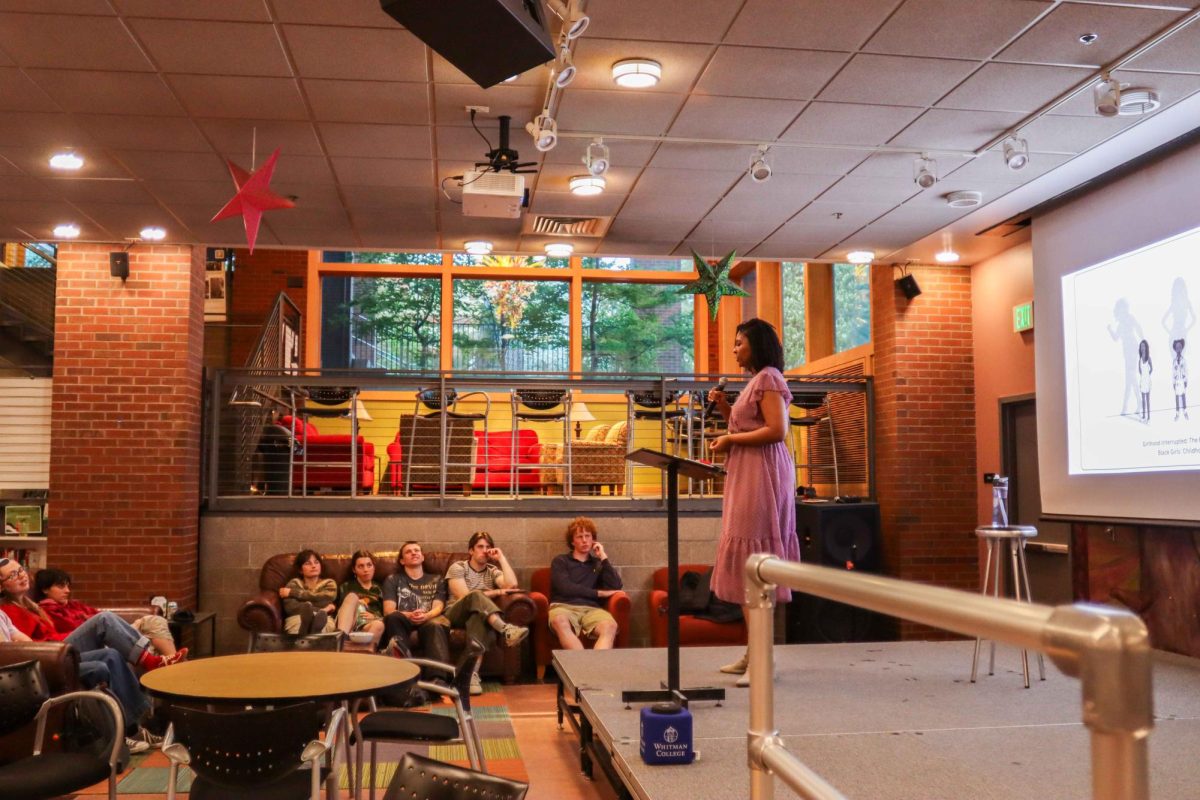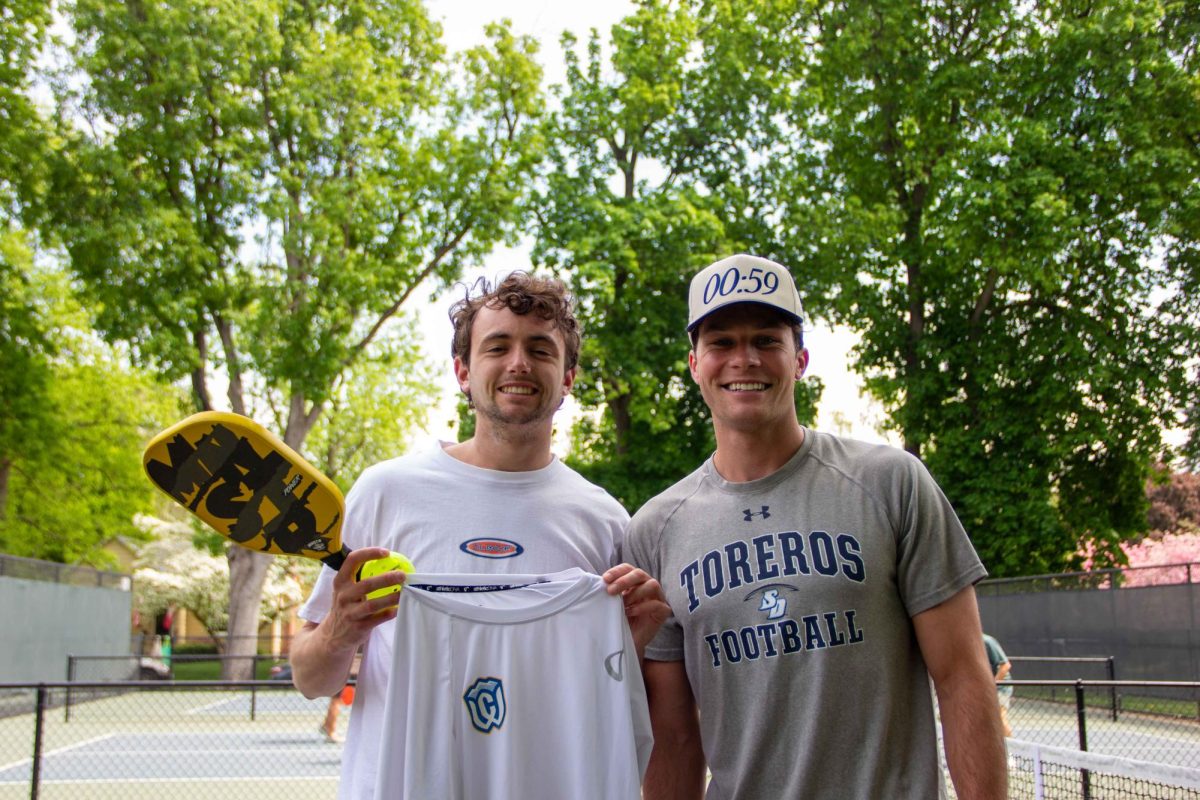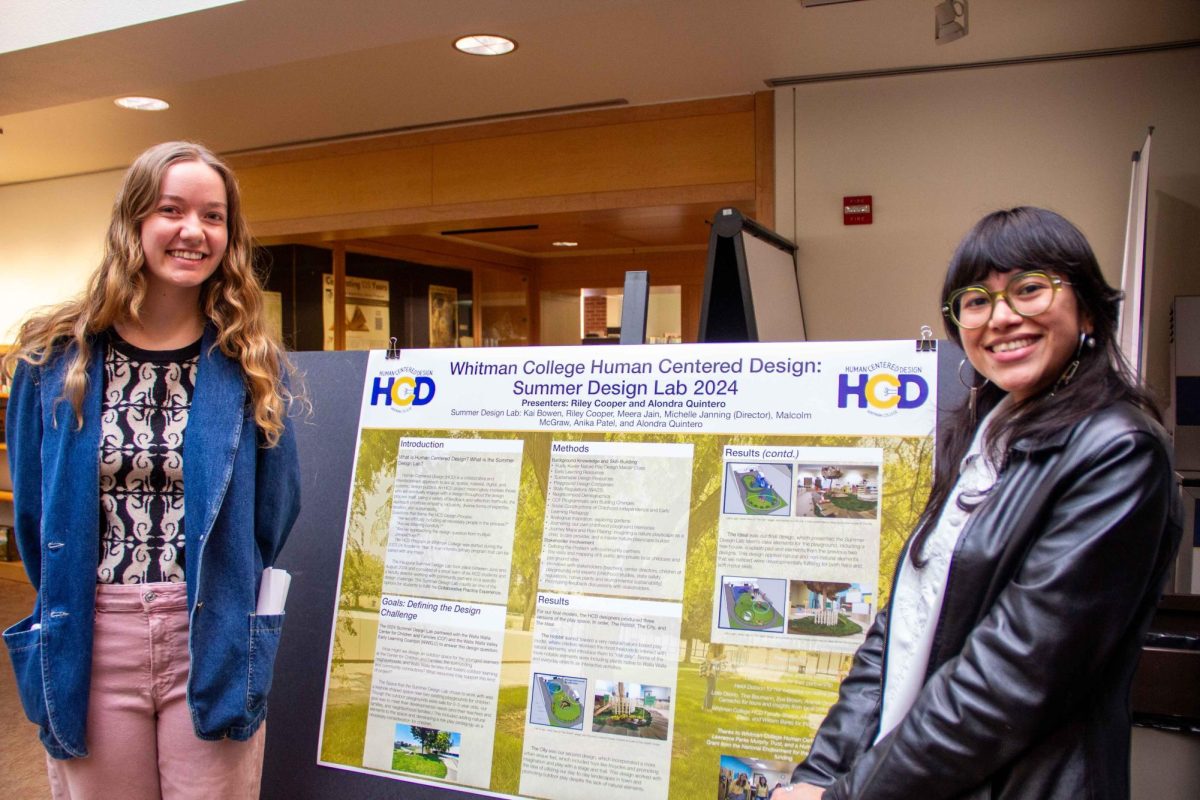Over 160 eager audience members listened to astrophysicist Kihana Wilson speak on diversity in STEM fields during this year’s Power and Privilege Symposium (P&P). Wilson, who has amassed nearly 100K followers on Instagram, is a science communicator and astrophysics researcher who aims to make science more accessible and inclusive.
Elizabeth Huang, a senior Geology and English major, is the president of the Geology and Environmental Scientists of Color Club. This year, the club was responsible for organizing and coordinating Wilson’s visit to campus with funding from the Brode Endowment and a DEIA Cultivation grant. For Huang, the decision to include Wilson’s talk as a part of P&P was an intentional decision to increase attendance and streamline advertising strategies. Huang mentioned that especially since most talks tend to center around politics or humanities, the STEM slant of Wilson’s talk was an opportunity to draw new students into attending the symposium.
“We were already planning for her visit to be in February, the subject of her talk fit well in the P&P theme, and P&P could help with the logistics and advertising,” Huang said. “There have been very few STEM-related P&P sessions in the past, so we figured that this would generate a lot of interest and we could get a large turnout… We would definitely work with P&P again in the future to bring more scientists of color to Whitman, we had such a great turnout.”
Junior Maddy Becherini, treasurer of the Geology and Environmental Scientists of Color Club who is an Environmental Science-Geology major, discussed the club’s decision to bring Wilson to campus. Becherini found an affinity in the talk and felt it achieved the club’s goals by contextualizing broader conversations about equity to the field of academia.
“We felt that having a post-baccalaureate, queer woman in STEM give a talk would be really significant, since we’re such an underrepresented community (which is why the club exists in the first place). I would say my favorite part of the talk was the Q&A section, because it felt like Kihana was having a conversation with the audience. I also really enjoyed Kihana’s enthusiasm overall, because it made me feel like I have something to look forward to in the future as a queer person of color in science,” Becherini said.
For Huang, the effort it took to coordinate Wilson’s visit was worth it, and having the opportunity to see their work pay off allowed them to reflect on their own experience as a scientist.
“Attending the talk was really moving for me. The weeks leading up to the talk were very hectic, and the whole time that we were planning it I was very focused on what impact it could have on other people and getting other students to attend,” Huang said. “It wasn’t until I walked down from the stage after introducing Kihana, sat down and finally listened to the talk we had been working so hard to coordinate, that I realized how badly I needed to hear this talk, how badly I — as a queer geologist of color — needed to see this representation at my own school. I felt seen, more so than I ever have as a STEM major at Whitman. This feeling was encouraging to me not only as a scientist, but as someone who has been fighting this fight for years.”
During the talk, Wilson reflected on the connection between her personal experience and her work as a science communicator. Despite feeling like astrophysics was her way of escaping the struggles and poverty she faced growing up, she turned to communication as a way to connect her work as a scientist to communities like hers.
“Community inspired me to become a science communicator… In my senior year, I was suffering from my worst burn out ever, and I got COVID… over that time I posted my first video as a science content creator. It went viral, and after a couple months my platform skyrocketed… The mission that always drove me was being the representation I always needed,” Wilson said during her talk.
The Division of Inclusive Excellence, who provided the funding for the DEIA Cultivation Grant that financed Wilson’s visit, plays a crucial role in P&P every year. Gina Zandy Ohnstad, Whitman’s Vice President for Communications, spoke on behalf of the Division of Inclusive Excellence about support for P&P.
“The Division contributes significant financial resources to P&P. We see the Symposium as a valuable learning space for the entire community that is aligned with the principles of inclusive excellence we advance and regard as essential for a welcoming campus environment,” Zandy Ohnstad said.
Talks like Kihana Wilson’s that utilize school funding to bring in speakers from outside the Whitman community mark a possible shift in P&P’s dynamic, where sessions expand beyond student presenters to include funded speakers from outside the college. The inclusion of more speakers, like Wilson, from outside Whitman expands possible P&P topics and creates new chances for student engagement.




